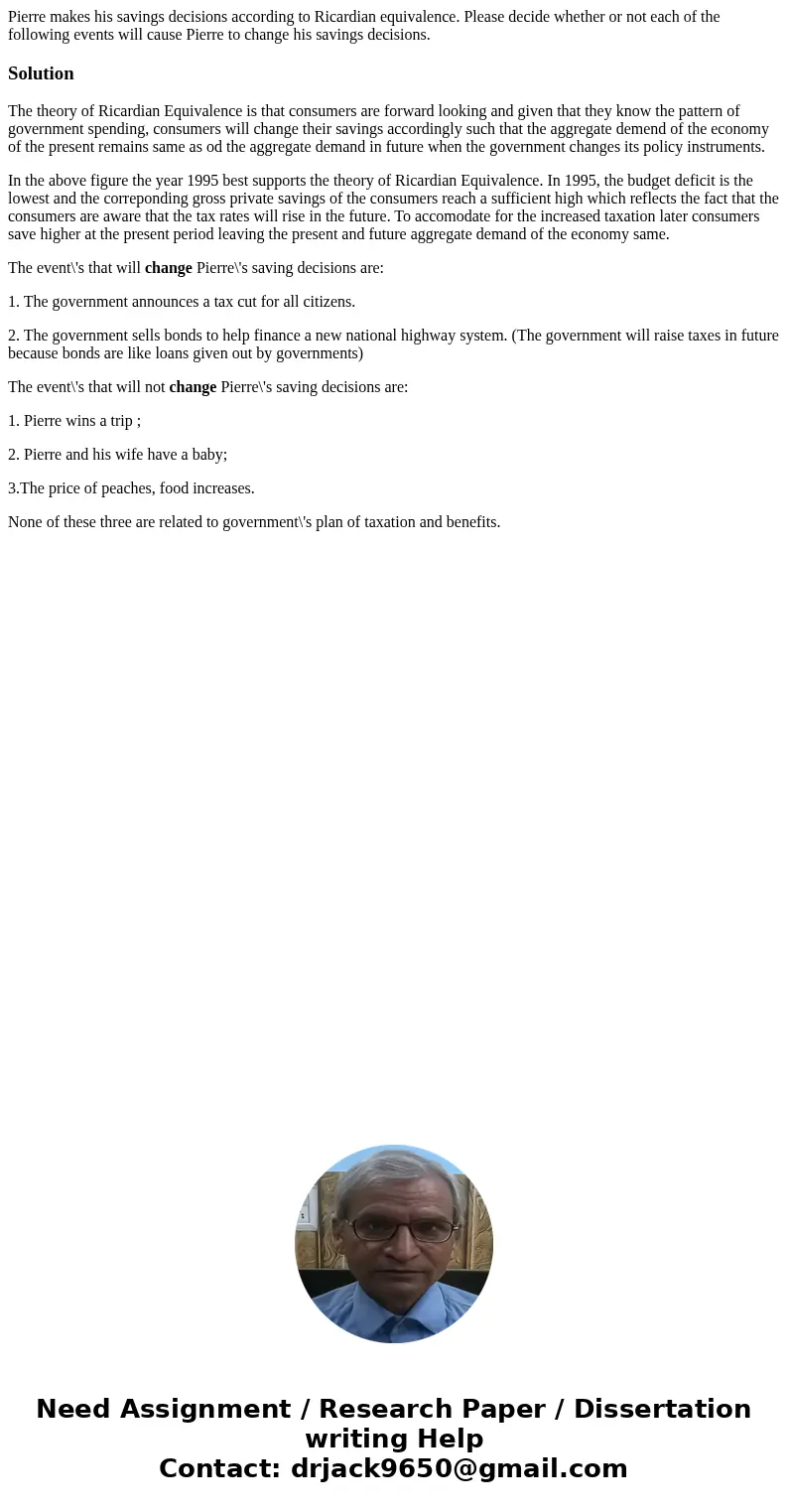Pierre makes his savings decisions according to Ricardian eq
Solution
The theory of Ricardian Equivalence is that consumers are forward looking and given that they know the pattern of government spending, consumers will change their savings accordingly such that the aggregate demend of the economy of the present remains same as od the aggregate demand in future when the government changes its policy instruments.
In the above figure the year 1995 best supports the theory of Ricardian Equivalence. In 1995, the budget deficit is the lowest and the correponding gross private savings of the consumers reach a sufficient high which reflects the fact that the consumers are aware that the tax rates will rise in the future. To accomodate for the increased taxation later consumers save higher at the present period leaving the present and future aggregate demand of the economy same.
The event\'s that will change Pierre\'s saving decisions are:
1. The government announces a tax cut for all citizens.
2. The government sells bonds to help finance a new national highway system. (The government will raise taxes in future because bonds are like loans given out by governments)
The event\'s that will not change Pierre\'s saving decisions are:
1. Pierre wins a trip ;
2. Pierre and his wife have a baby;
3.The price of peaches, food increases.
None of these three are related to government\'s plan of taxation and benefits.

 Homework Sourse
Homework Sourse